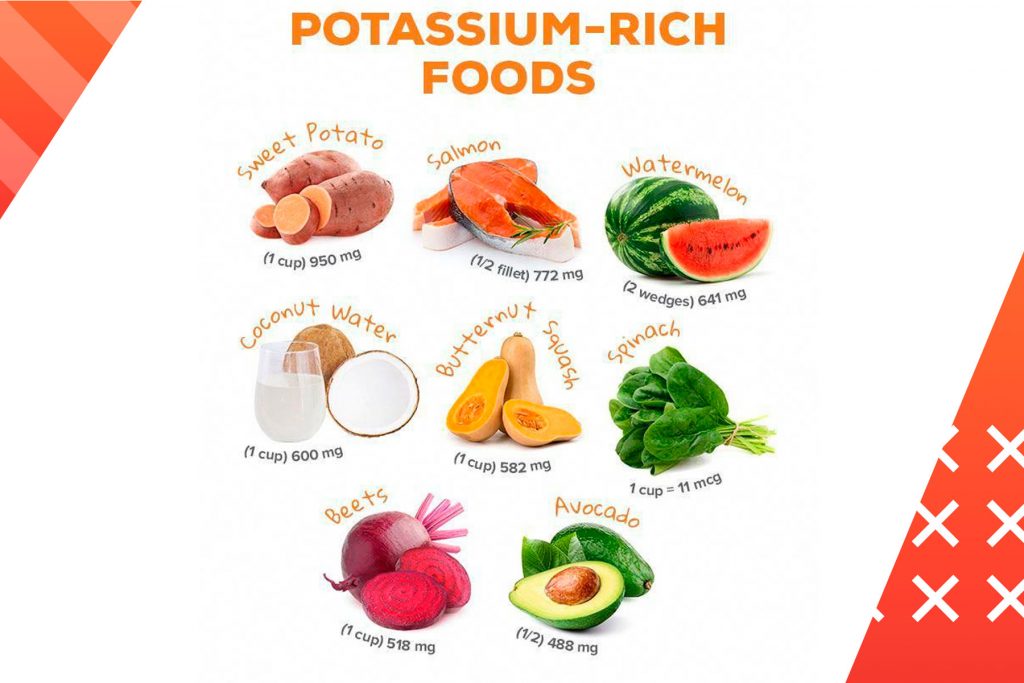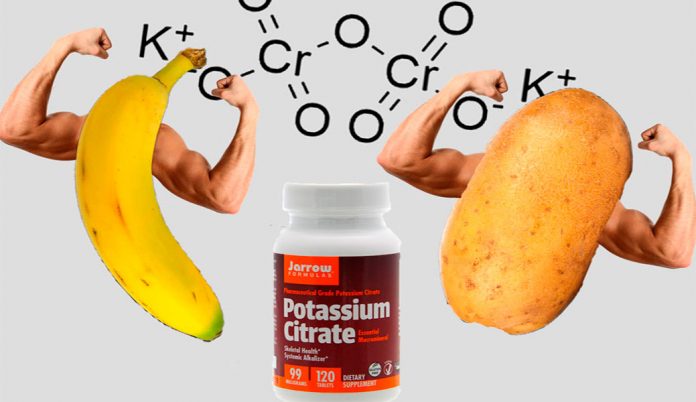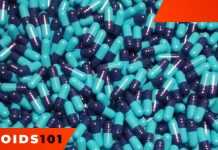Potassium is a mineral that is necessary for supporting bodily functions and involves a vast number of biochemical processes in the human body. Potassium covers a wide range of processes – from the regulation of acid-base balance to the effect on the functioning of the heart muscle. Along with calcium and magnesium, potassium is one of the critical electrolytes in the human body. As an electrolyte, potassium is responsible for the transmission of electrical impulses between cells. Potassium and sodium are responsible for maintaining water balance in the body – potassium is a sodium antagonist, that is, potassium reduces the volume of extracellular fluid, while sodium increases it. That way, the water balance in the body is maintained. Speaking about potassium and sodium, it is also worth noticing the so-called sodium-potassium pump – a cycle during which two potassium ions are transferred to the cell, and three sodium ions are transferred from the cell. The primary function of the sodium-potassium pump is to maintain resting potential and regulate cell volume. With all that in mind, it’s out of the question that potassium is an essential mineral, the consumption of which should not be neglected.
How much potassium should be consumed per day? The recommended daily intake of potassium ranges from 1800 milligrams to 5000 milligrams for adult men and women. The range is quite broad, so it is necessary to determine the daily rate of potassium intake individually, taking into account such factors as age, weight, level of physical activity, health status, and more.
An increased dosage of potassium is needed by people who have problems with the cardiovascular system. One study showed that a potassium-rich diet is associated with a reduced risk of stroke. Another study found that consuming high doses of potassium lowers blood pressure.
Long-term potassium deficiency can lead to the development of cardiac arrhythmias and heart failure. Potassium, as mentioned above, affects the functioning of the myocardium and helps strengthen the heart muscle. Potassium deficiency typically occurs due to an unbalanced diet. Another common cause of potassium deficiency is persistent diarrhea. Severe potassium deficiency can even be fatal in particular cases. Such a deficiency may be encountered by people who take diuretics uncontrollably.
Potassium-rich Foods
To increase the amount of potassium in your diet, you should add as many vegetables and fruits as possible, as they are an excellent source of potassium, as well as other minerals and vitamins.
Avocados, bananas, dried fruits (apricots, prunes), tomatoes, spinach are some of the best foods in terms of potassium content. Nuts (walnuts, hazelnuts, cashews) also contain a large amount of this mineral. Salmon and sprats are also an excellent source of potassium.
If, for some reason, you cannot add potassium-rich foods to your diet, then you can use dietary supplements containing potassium.

Potassium in Bodybuilding and Other Sports
Bodybuilders and other athletes should pay extra attention to potassium intake. The fact is that during a workout, along with sweat, the body loses a large amount of potassium, sodium, and chlorides. During an intense or prolonged (more than 60 minutes) workout, the body can lose so much potassium, sodium, and chloride that it can negatively affect both the workout’s productivity and recovery that comes afterward. For avoiding the adverse consequences associated with the loss of potassium, sodium, and chlorides, it is recommended to consume drinks containing electrolytes during exercise. The optimal choice for making up for electrolyte losses is isotonic additives. Those can be prepared independently or purchased in the form of a water-soluble powder or a ready-made solution (beverage).



